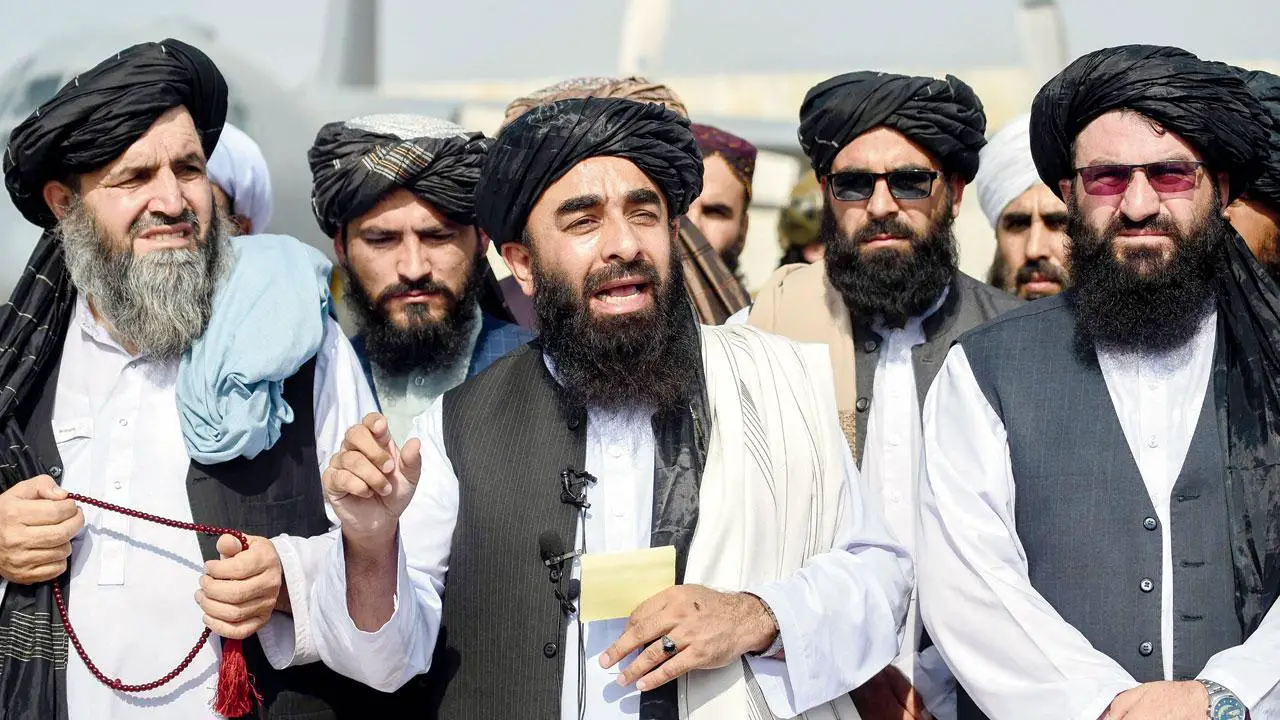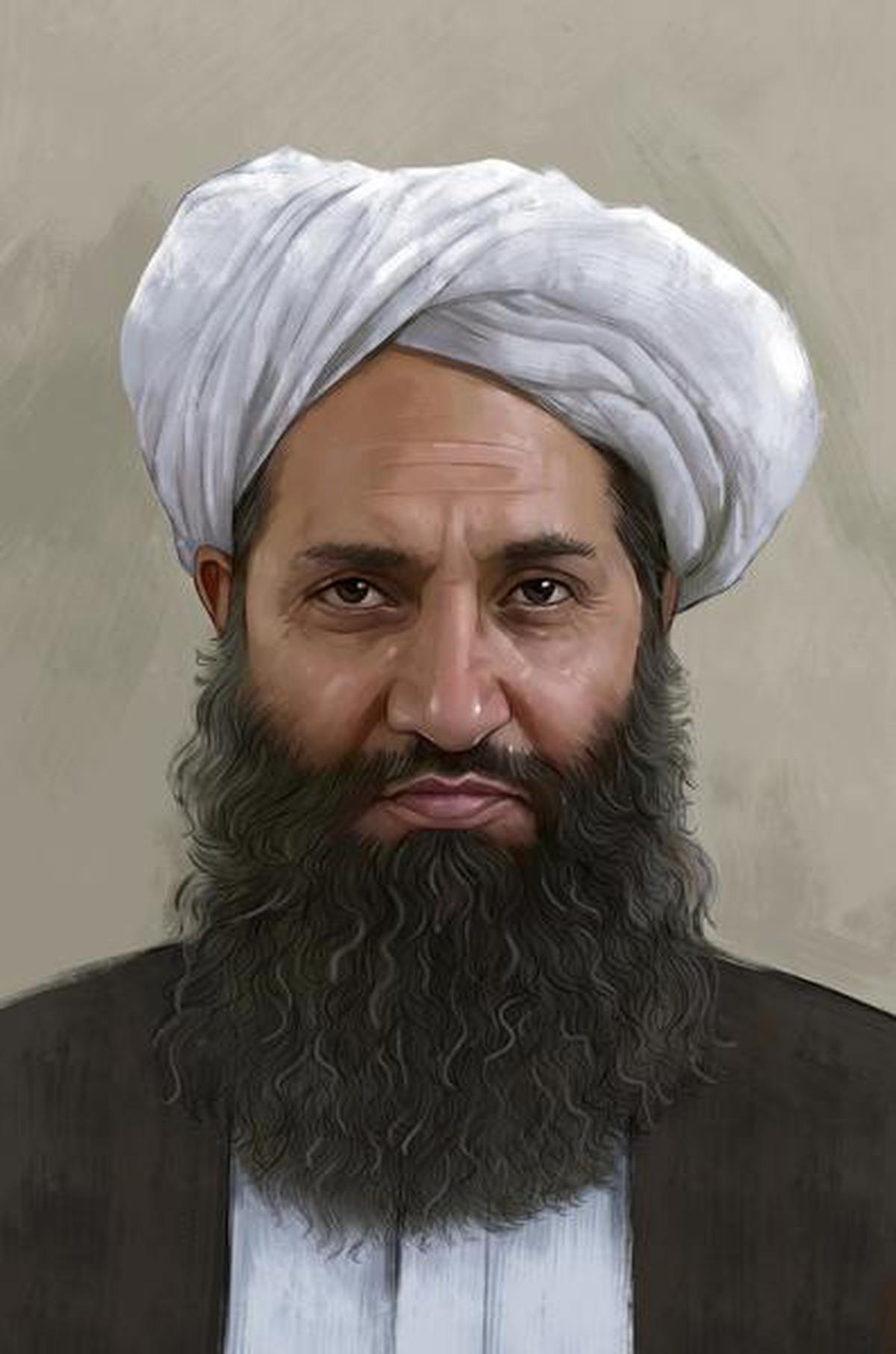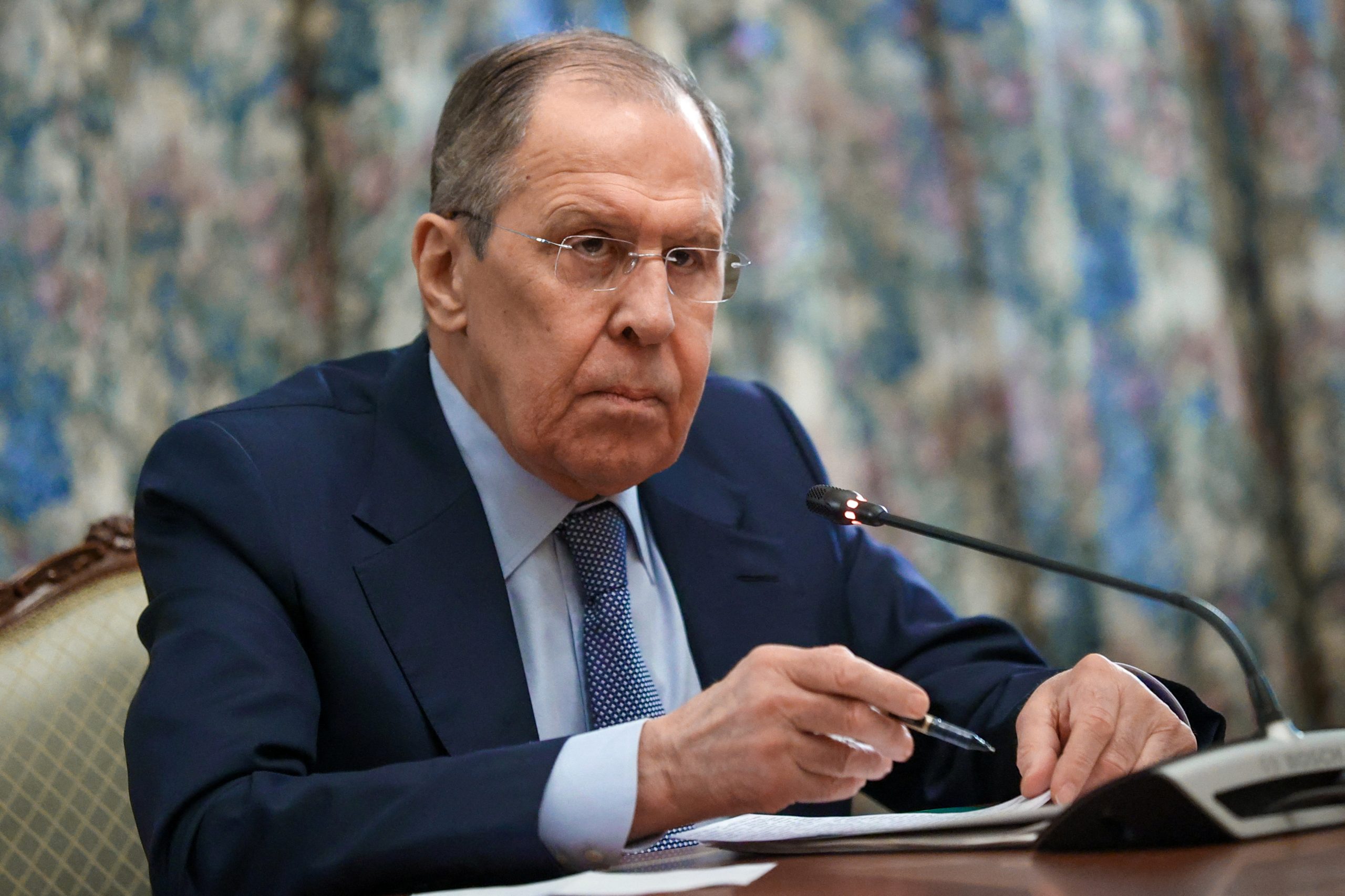Moscow’s recent decision to remove the Taliban from its list of terrorist organizations marks a pivotal shift in international geopolitics. This move, taken at the “highest level” according to Russian officials, reflects Moscow’s evolving foreign policy toward Afghanistan and signals a potential new chapter in the region’s security dynamics.
By aligning with the Taliban, Russia is not only recalibrating its strategic partnerships in Central Asia but also positioning itself as a key player in Afghanistan’s future. While Moscow justifies the decision as a pragmatic step toward maintaining dialogue and fostering stability, the potential military and political implications of this partnership are profound.
Moscow’s Strategic Calculation
Russia’s decision to remove the Taliban from its terrorist list is part of a broader trend of normalization that some countries have tentatively pursued since the Taliban seized power in August 2021. While no country has formally recognized the Taliban as Afghanistan’s legitimate government, Russia, along with China, the UAE, and Kazakhstan, has incrementally developed relations with the group. In Russia’s case, this is not merely a diplomatic gesture but part of a calculated move to secure its influence in a region that remains critical to its security interests.
For years, the Taliban was considered a destabilizing force in Afghanistan and a threat to regional security. Russia’s inclusion of the Taliban on its terrorist list in 2003 reflected this perception. However, the collapse of the U.S.-backed Afghan government and the Taliban’s return to power have forced a reassessment of how the group fits into the broader geopolitical landscape. Russia has opted for a more pragmatic approach, recognizing that engaging with the Taliban may be the most effective way to ensure regional stability and prevent Afghanistan from becoming a haven for extremist groups like the Islamic State (ISIS), which remains outlawed in Russia.
Russian President Vladimir Putin has framed this decision as a necessary step to combat terrorism, portraying the Taliban as an ally in the fight against ISIS and other terrorist organizations. While this narrative may resonate domestically, the reality is that the decision is motivated by a range of strategic interests, including securing Russia’s southern borders, controlling narcotics flows, and maintaining influence in Central Asia, where former Soviet states are vulnerable to the spillover effects of Afghan instability.

The Strategic Partnership Between Russia and the Taliban: What it Could Mean Militarily
One of the most significant questions raised by Moscow’s decision is how far this partnership with the Taliban will extend, particularly in terms of military cooperation. While Russia is unlikely to provide the Taliban with the kind of overt military support that would draw international condemnation, there are several ways in which Russia could help the group strengthen its hold on Afghanistan.
Russia has a long history of arms exports, and although it is bound by international sanctions and laws that limit military support to non-recognized governments, it could potentially find ways to provide the Taliban with military equipment through unofficial or deniable channels. Even before the Taliban seized power in 2021, reports suggested that Russia was supplying arms to the Taliban in exchange for cooperation against ISIS and other groups that threatened Russian interests in Central Asia.
Moscow could facilitate the supply of small arms, ammunition, and possibly advanced weaponry under the guise of combating terrorism. For the Taliban, securing access to modern Russian arms would enhance their ability to consolidate control over Afghanistan and potentially suppress rival factions within the country.
The Taliban’s military has already benefited from capturing U.S.-supplied equipment abandoned during the chaotic U.S. withdrawal, but Russian-made arms could offer a different set of tactical advantages, particularly in counterinsurgency operations against ISIS-affiliated groups.
A potential avenue for military cooperation could be intelligence sharing, particularly regarding terrorist threats in Central Asia. Russia has a vested interest in preventing jihadist groups, especially ISIS, from gaining a foothold in Afghanistan. Moscow could provide the Taliban with intelligence on the movements of these groups, assisting the Taliban in their operations against them. In exchange, Russia would expect the Taliban to curb the activities of extremists who might otherwise threaten Russian allies in Central Asia, such as Tajikistan and Uzbekistan.
Russia’s involvement in counterterrorism operations in Syria, where it has worked closely with the Assad regime, could serve as a model for its approach in Afghanistan. While the two situations are not entirely comparable, Russia’s willingness to support controversial regimes in exchange for geopolitical influence is a well-established pattern.
Though direct military engagement by Russian forces in Afghanistan is unlikely—given the disastrous Soviet experience in the 1980s—there is a possibility that Moscow could offer military training and advisory support to Taliban forces. Russia has extensive experience training foreign militaries and could help professionalize the Taliban’s armed forces, particularly in areas like counterterrorism, border security, and intelligence operations.
Such support would not only enhance the Taliban’s ability to maintain control over Afghanistan but also deepen Moscow’s influence within the country. By positioning itself as a key military partner to the Taliban, Russia could ensure that its interests are protected in any future political settlement or power-sharing arrangement in Afghanistan.

The Impact on Regional Security: A Double-Edged Sword
Russia’s decision to engage more directly with the Taliban has profound implications for the security of the region, particularly Central Asia and South Asia. Afghanistan is a nexus of geopolitical tensions, with several regional powers, including China, Iran, Pakistan, and India, all vying for influence. By aligning itself with the Taliban, Russia is inserting itself more directly into this complex web of interests.
For Russia, one of the primary motivations behind engaging with the Taliban is to secure its southern border and prevent instability from spilling over into Central Asia. The former Soviet republics of Tajikistan, Uzbekistan, and Turkmenistan share long, porous borders with Afghanistan, and the security of these borders has been a perennial concern for Moscow. The presence of extremist groups in Afghanistan, particularly ISIS-affiliated factions, poses a direct threat to the stability of these countries, many of which are already grappling with their internal challenges.
By building a partnership with the Taliban, Russia hopes to create a buffer against the spread of extremism into Central Asia. In theory, if the Taliban can maintain control over Afghanistan and suppress rival militant groups, the region could see a reduction in cross-border violence and extremism. However, this is far from guaranteed. The Taliban’s capacity to govern Afghanistan is still in question, and the group has historically maintained links with other jihadist organizations, including al-Qaeda. There is a risk that, rather than acting as a stabilizing force, the Taliban could become a breeding ground for new waves of extremism that spill over into Central Asia, drawing Russia into a deeper and more protracted security crisis.
The Russia-Taliban partnership could also exacerbate tensions in South Asia, particularly between India and Pakistan. Pakistan has long been a key supporter of the Taliban, using the group as a proxy to exert influence in Afghanistan. India, on the other hand, has historically supported the anti-Taliban Northern Alliance and remains deeply suspicious of the group’s ties to Pakistan.
India has sought to build closer ties with Russia in recent years, particularly in the context of defense and energy cooperation. However, Moscow’s decision to align with the Taliban could strain its relationship with New Delhi, which views the Taliban’s rise as a threat to its security interests in the region. A Taliban-controlled Afghanistan is seen as a potential base for anti-Indian jihadist groups, and India will be closely watching any signs of Russian military support for the Taliban.
Conversely, Pakistan is likely to welcome Russia’s engagement with the Taliban. Islamabad has been advocating for the Taliban’s international recognition and has sought to position itself as a key interlocutor between the group and the global community. A Russia-Taliban partnership could strengthen Pakistan’s hand in Afghanistan, allowing it to exert even greater influence over the country’s future.
One of the lesser-discussed but critical aspects of Russia’s engagement with the Taliban is the issue of narcotics trafficking. Afghanistan is the world’s largest producer of opium, and the drug trade has been a major source of revenue for the Taliban. Russia has been a vocal critic of the global drug trade, particularly given the rise of heroin addiction within its borders, much of which is fueled by Afghan opium.
While the Taliban has claimed that it is working to reduce drug production, the reality is that the group relies heavily on narcotics revenues to fund its operations. Moscow’s decision to engage with the Taliban raises questions about how seriously it will push the group to curtail the drug trade. If Russia turns a blind eye to the Taliban’s involvement in narcotics production in exchange for political and military cooperation, it could exacerbate the global drug crisis and fuel organized crime networks that operate within Russia and Europe.

What to Expect from the West
Russia’s decision to normalize relations with the Taliban will likely trigger strong reactions from the West, particularly the United States and its NATO allies. For years, Western governments have refused to recognize the Taliban, citing the group’s human rights abuses, links to terrorism, and repressive governance. Moscow’s move to remove the Taliban from its terrorist list will be seen by many as a betrayal of international efforts to isolate the group and pressure it to reform.
One possible consequence of Russia’s decision is the imposition of additional sanctions by Western countries. The U.S. and European Union have already imposed a range of sanctions on Russia in response to its actions in Ukraine, and further sanctions could be targeted at Russian entities that engage with the Taliban. Such measures would be aimed at limiting Moscow’s ability to provide military or financial support to the group.
Diplomatic isolation is another likely response. The U.S. and its allies may seek to further marginalize Russia in international forums, particularly in the context of Afghan reconstruction efforts. The United Nations, which plays a key role in coordinating international aid to Afghanistan, could become a battleground for competing visions of how to engage with the Taliban.
The Russia-Taliban partnership also risks further deepening the divide between Russia and the West, contributing to the emergence of a new Cold War-like dynamic. In this context, Afghanistan could once again become a theater for geopolitical competition, much as it was during the Cold War when the U.S. and Soviet Union backed rival factions in the Afghan civil war.
This time, however, the competition is more complex, involving not only the U.S. and Russia but also China, Iran, and regional powers like India and Pakistan. Russia’s support for the Taliban could prompt the U.S. to deepen its partnerships with other regional actors, particularly India, which shares Washington’s concerns about Taliban extremism and Pakistan’s role in Afghanistan.
A Risky Gamble with Uncertain Outcomes
Moscow’s decision to remove the Taliban from its terrorist list and pursue a closer partnership with the group is a bold and risky gamble. While Russia hopes to secure its influence in Afghanistan and prevent the spread of extremism into Central Asia, the long-term consequences of this move are far from certain. The Taliban remains an unpredictable and unstable partner, and its capacity to govern Afghanistan and maintain control over its territory is still in question.
For Russia, the stakes are high. If the Taliban succeeds in consolidating power and curbing extremist threats, Moscow could emerge as a key player in shaping Afghanistan’s future. However, if the Taliban’s rule descends into chaos, Russia could find itself drawn into a protracted security crisis on its southern border, with potentially devastating consequences for regional and global stability. In the end, Moscow’s decision to engage with the Taliban reflects a broader trend in Russian foreign policy: a willingness to take bold risks in pursuit of strategic gains, even when the outcome remains uncertain.



